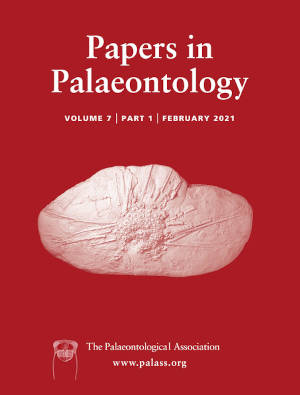Reg. Charity No. 1168330

The early Palaeogene represents a key interval in the evolution of modern marine fish faunas. Together with the first appearances of many familiar fish lineages characteristic of contemporary marine environments, early Palaeogene marine deposits worldwide feature the occurrence of osteoglossid bonytongues. Their presence in marine rocks is surprising, given that these fishes are strictly associated with freshwater environments in modern settings and in other parts of the fossil record. Despite its possible relevance to faunal recovery after the Cretaceous–Palaeogene (K–Pg) extinction, this marine osteoglossid radiation is relatively understudied. Here we describe an osteoglossid specimen from marine Danian deposits of western Greenland (Eqalulik Formation, northern Nuussuaq Peninsula). It consists of disarticulated cranial, pectoral and vertebral material belonging to a relatively large‐bodied predator, similar to the widespread †Brychaetus but with some distinctive features. This specimen expands the geographical range of extinct osteoglossids to the Arctic and represents one of the earliest records of this group in marine deposits. We review other fossil occurrences of marine osteoglossids, highlighting temporal and biogeographical patterns that characterize their rise, diversification and sudden disappearance in the middle Eocene. It is likely that the transition from freshwater to marine environments occurred around the K–Pg boundary, possibly related to ecological replacement of predatory fish lineages that went extinct at the end of the Cretaceous. Further study of the Eqalulik Formation fauna could yield additional insight into the consequences of the end‐Cretaceous extinction with regard to marine fish evolution and the assembly of modern marine faunas.